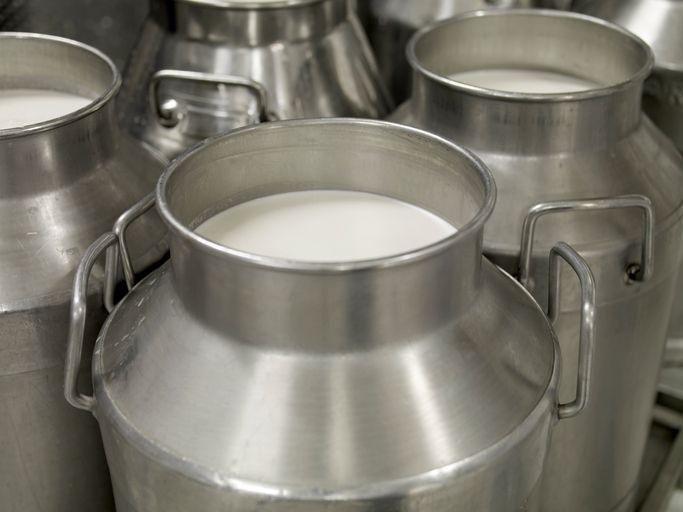Welcome to our enlightening blog, where we explore the transformative power of processing and marketing value-added dairy products in Africa.

1. Adding Value: From Milk to Delightful Dairy Products:
Adding value to dairy products involves transforming raw milk into a range of value-added products that cater to diverse consumer demands. Let’s explore the various stages of value addition:
- Pasteurization and Homogenization: Dairy processors ensure the safety and quality of milk by pasteurizing it, eliminating harmful bacteria while retaining its nutritional value. Homogenization helps create a consistent texture and prevent the separation of cream.

- Diversifying Product Range: Value addition opens up opportunities to produce a wide array of dairy products, such as yogurt, cheese, butter, ice cream, and flavored milk. These products cater to different consumer preferences and offer higher profit margins compared to raw milk.

- Innovating with Local Ingredients: African countries are rich in unique ingredients and flavors. Dairy processors can leverage these resources to create innovative and culturally relevant products. For example, incorporating indigenous fruits, spices, or grains can add a distinct and appealing taste to dairy products.

2. Quality Assurance and Standards:
To succeed in processing and marketing value-added dairy products, maintaining high quality and adhering to international standards is crucial. Here are some key considerations:
- Good Manufacturing Practices (GMP): Dairy processors must implement GMP, ensuring hygienic production environments, proper sanitation, and adherence to food safety protocols. This builds consumer trust and increases market competitiveness.

- Regulatory Compliance: Complying with national and international food regulations is essential for accessing both domestic and export markets. Dairy processors need to obtain necessary certifications, such as HACCP (Hazard Analysis and Critical Control Points) and ISO (International Organization for Standardization), to ensure product safety and quality.

- Traceability and Transparency: Implementing traceability systems allows consumers to track the origin and production process of dairy products. This fosters transparency and builds consumer confidence, especially in the era of food fraud and concerns about product authenticity.

Additionally, you should Note that our company can help you to start by giving you all the necessary information you need to get started if not yet in the business. Please check our online shop, we have all the standard business proposals for different capacities at very a cheap price made by the best agricultural specialists as well as Standard design plans that are made by the best agricultural architects around the globe. please visit our online shop now using the links below to witness by yourself
Design plans (FARM HOUSE DESIGNS – Kimd Construction & Farm Consultants)
Business plans (BUSINESS PLANS & PROPOSALS – Kimd Construction & Farm Consultants)
Welcome back from visiting our shop, hope you have placed your order for any of our products or you can place it after navigating more of our informative articles.
So let’s continue with our article!
3. Market Expansion and Distribution:
Effectively marketing and distributing value-added dairy products is vital for success. Here are key strategies to consider:
- Branding and Packaging: Developing a strong brand identity and visually appealing packaging helps differentiate products in a crowded market. Creating a unique story around the brand and using sustainable packaging materials can also attract environmentally conscious consumers.

- Targeted Marketing: Understanding consumer preferences and tailoring marketing efforts accordingly is crucial. Utilize digital platforms, social media, and influencer marketing to reach a wider audience and engage with potential customers.

- Partnerships and Distribution Channels: Collaborating with retailers, supermarkets, and foodservice providers can help expand market reach. Additionally, establishing direct-to-consumer channels such as online platforms or farm shops can create a loyal customer base.

4. Promoting Entrepreneurship and Local Value Chains:
Encouraging entrepreneurship and supporting local value chains is essential for the sustainable growth of the dairy industry. Here’s how it can be achieved:
- Training and Capacity Building: Providing training and technical support to small-scale dairy farmers and processors improves their skills and knowledge in value addition. This empowers them to produce high-quality products, access markets, and enhance their income-generating potential.

- Government Support and Investment: Governments play a crucial role in creating an enabling environment for dairy entrepreneurship. By implementing supportive policies, providing access to finance, and investing in infrastructure, governments can fuel the growth of value-added dairy processing and marketing.

Conclusion:
As we conclude our exploration of processing and marketing value-added dairy products in Africa, we are inspired by the immense potential and opportunities that lie within the dairy industry. By adding value to dairy products, African entrepreneurs can unlock economic growth, improve livelihoods, and contribute to the overall development of the continent. Let us embrace the power of innovation, quality assurance, market expansion, and local value chains to create a thriving and sustainable dairy sector in Africa. The time to revolutionize the dairy industry is now.




